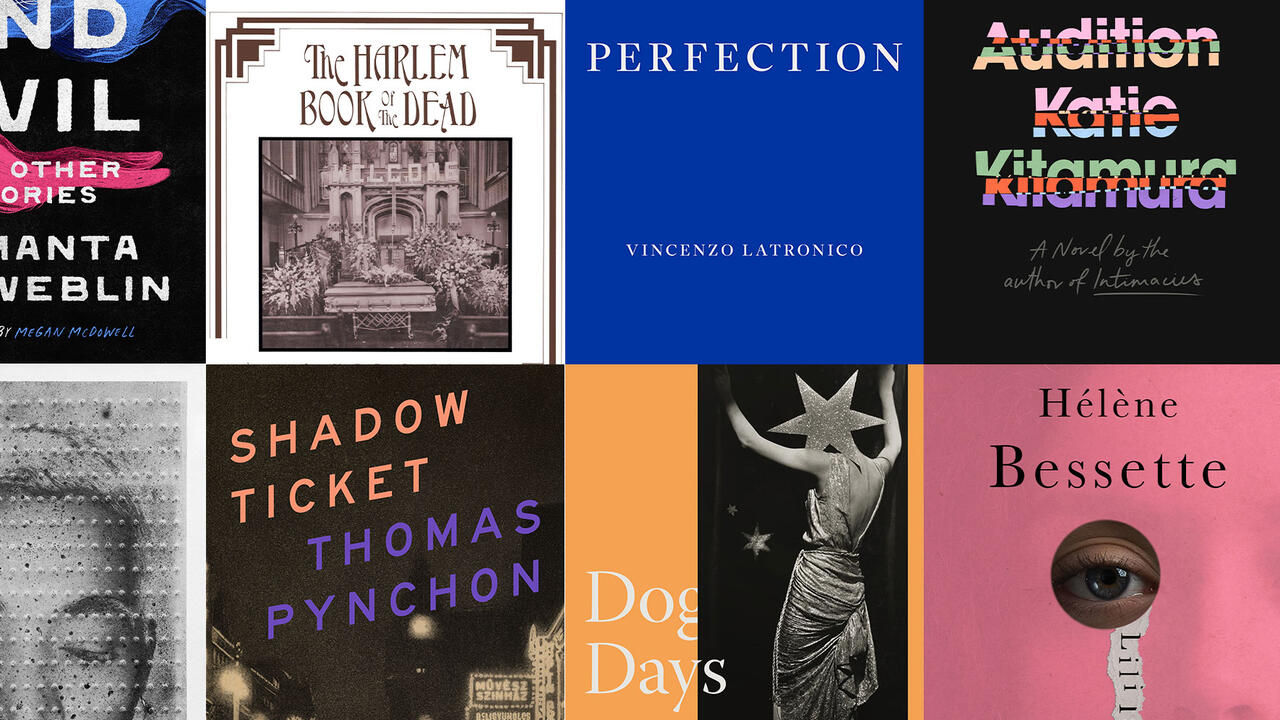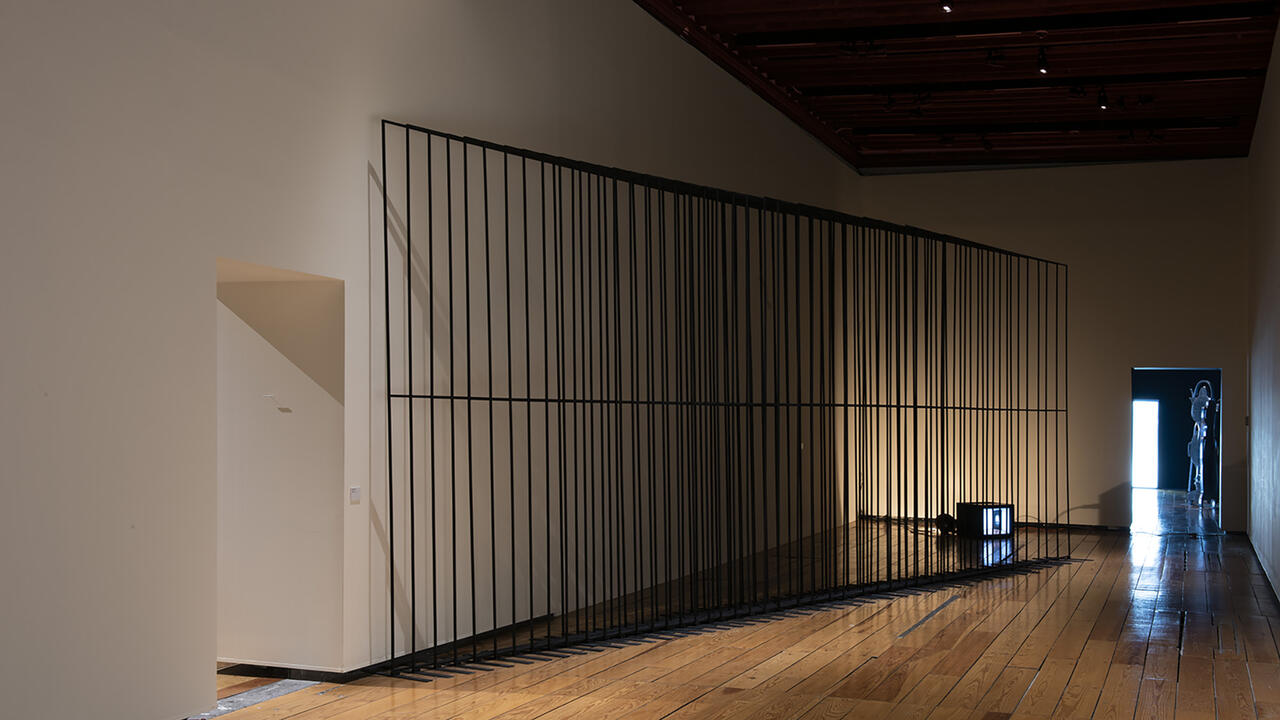Tim Rollins and K.O.S.
In Aristophanes' hell, far from the socio-political confusion threatening to shred the already threadbare fabric of fifth century BC Athens, the dead poet Aeschylus defends the power of the Poet before Dionysus, his judge and potential redeemer. With hopes of regaining agency and influence, Aeschylus speaks: 'Schoolboys have a master to teach them. Adults have the poets. We have a duty to see that what we teach them is right and proper.' At Mary Boone Gallery, equally distant from the Art & Knowledge workshop in the South Bronx, Tim Rollins continues his work as both master of K.O.S. and poet with K.O.S. in an exhibition of paintings whose material support is provided by pages from three comedies by Aristophanes: The Birds, The Clouds and The Frogs.
With wit and seriousness, each of Aristophanes' plays embraces the problems inherent in a Democratic State: who will lead when all are relatively capable? How will one lead when all have relative needs? To where will one lead when all have relative destinations? These questions have never been more pertinent than in the recent political history of the United States, given the Right's concerted attempt to cut public programmes hoping that the private sector will replace them with a greater investment-to-yield ratio. Never has the model for pedagogy and art practice created by Rollins and K.O.S. seemed so thought-provoking, alive and necessary.
Since the founding of the Art & Knowledge Workshop in 1982, Tim Rollins & K.O.S. have produced allegorical paintings, sculptures and drawings by mining the vast wealth of printed matter - from the popular to the arcane, from the minor to the canonical, from legal documents to comic books (areas in no way mutually exclusive in Rollins & K.O.S.'s view) - which are themselves understood as political allegories. 'Jammin' is what it has come to be called - Rollins reads aloud before the K.O.S. members, explaining and polishing various points, while the members draw and relate the stories to their own experiences. Most of the members, usually around ten, are junior and high school students from the South Bronx where the problems associated with low-income urban areas are endemic. Assembling the material together, they compose a painting to be applied directly onto the canvas-backed, gridded-out pages of the very books that provided inspiration.
At first sight, the interrelation between the words and the paintings in this exhibition is dumbly literal. Cartoon-like cloud patterns billow atop the pages of The Clouds (all works 1994); brightly coloured simplified winged shapes flutter over The Birds; and flatly painted tadpole-like forms, seemingly suspended in the process of mitosis, appear over The Frogs. The meaning and implications of the host texts, however, pre-empt a literal 'reading' of the parasitic marks, suggesting so many directions simultaneously. Like many other Aristophanic comedies, the title of the plays are taken from the names of their respective choruses, which are themselves a condensation of associations, symbols and idioms. In The Clouds, for example, which is a satirical account of the 'new' thinking of the Sophists, the clouds take the position of a murky muse who gleefully delights in misdirecting people from seeing what is Right by providing escapist hallucinations in the sky. Set against Rollins & K.O.S.'s pragmatism and clarity of purpose, these images become a wry critique of the stereotypically received notion of what an artist is expected, or allowed, to be.
Yet, the specificity of the works cannot be heuristically outlined without betraying their aims. For the very purpose of Rollins & K.O.S.'s material product is to underscore the capacity of the reader to turn writer in a perpetual movement towards individual understanding. Their immaterial, symbolic product is a continual restoration of the agency and influence of the poet. For if the politicians, orators and sophists cannot be trusted to lead - as in the time of Aristophanes - what of the poet? Unfortunately, one cannot help but suspect that sober economics has replaced Dionysus as the final arbiter.














